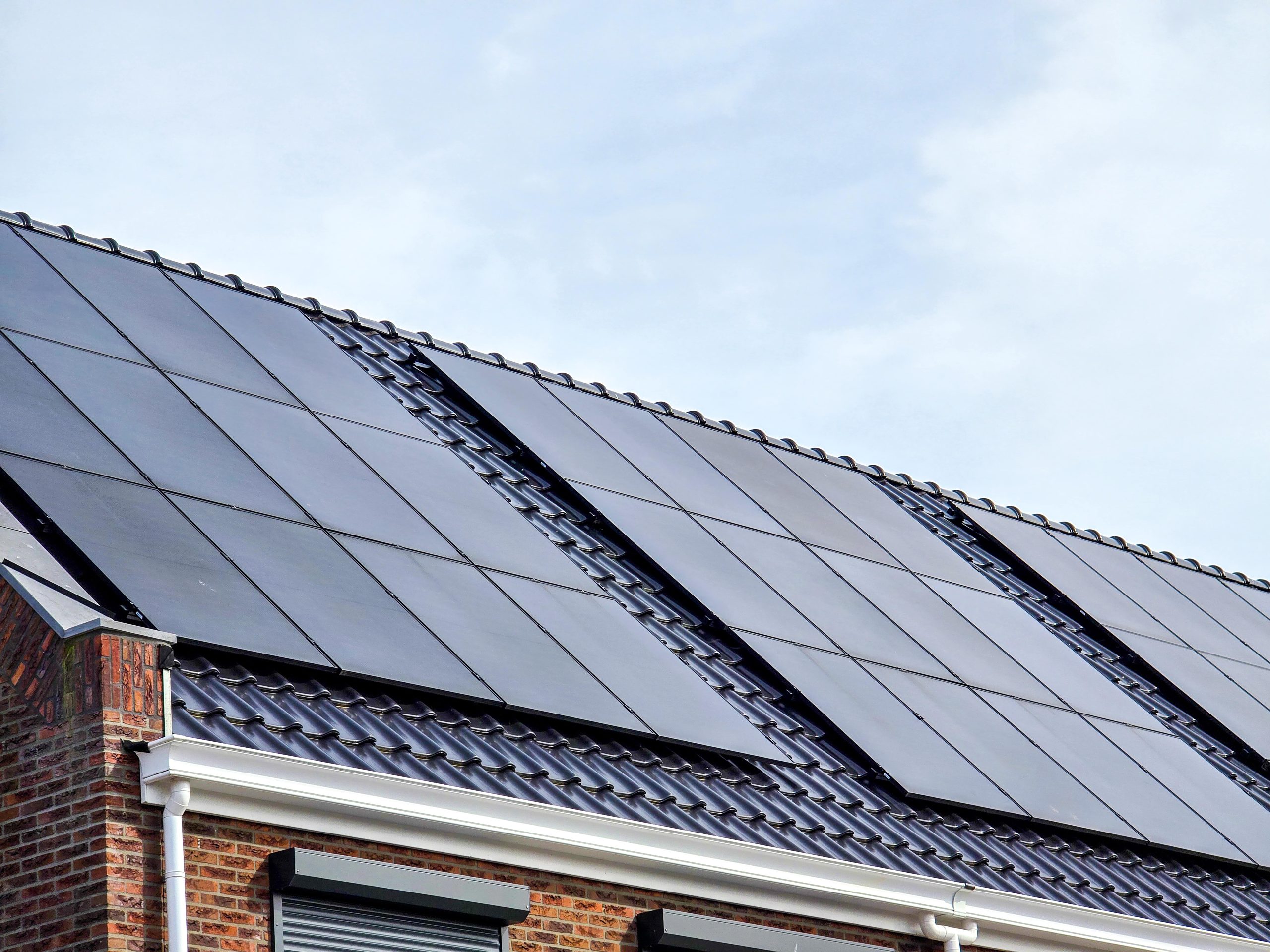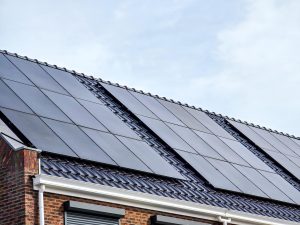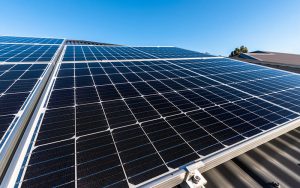
As energy costs continue to rise and environmental concerns grow, more homeowners in the UK are turning to solar energy as a reliable and sustainable power source.
Installing solar panels is one of the best ways to reduce energy bills, gain control over your power usage, and contribute to a cleaner environment.
At Bolton Electrical Services, we specialise in high-quality, professional solar panel installations tailored to meet the unique energy needs of homes across Bolton and the North West. With our expertise, we ensure each installation is efficient, seamless, and optimised for maximum benefit.

Why Choose Solar Panel Installation for Your Home?
Financial and Environmental Benefits of Solar Power
Investing in solar panels brings significant financial and environmental advantages. By generating your own electricity, you can offset a large portion of your energy bills, resulting in substantial savings over the years.
Solar panels offer a way to protect yourself from the volatility of energy prices, creating a long-term, cost-effective solution for your household.
Beyond financial savings, solar power is a clean and renewable energy source. By switching to solar, you actively reduce your carbon footprint, helping combat climate change.
Each kilowatt-hour generated from solar energy contributes to a decrease in greenhouse gas emissions, making it a positive choice for both your finances and the planet.
Energy Independence and Stability
Solar panels empower you to reduce your reliance on the national grid, providing a level of energy independence that offers stability against fluctuating energy prices.
By producing your own electricity, you have more control over your energy supply, which can be particularly valuable during peak usage times when prices tend to spike.
For those looking to further enhance their energy independence, adding a solar battery is an excellent option. A solar battery stores excess energy generated during the day, allowing you to use it in the evenings or during cloudy periods.
This setup not only increases your self-sufficiency but also ensures you’re maximising the use of the energy your system produces.
How to Determine if Your Home is Suitable for Solar Panels
Roof Orientation, Angle, and Space
To maximise solar panel performance, certain roof conditions are ideal. In the UK, a south-facing roof is generally the best orientation, capturing the most sunlight throughout the day.
The roof angle also matters—between 30° and 40° is optimal for sunlight absorption. Additionally, it’s essential to have enough unobstructed space on the roof to fit the number of panels required for your energy needs.
At Bolton Electrical, we ensure that each system is tailored to make the most of your available space, providing both efficiency and cost-effectiveness.
Assessing Shading and Sunlight Exposure
Shading can have a significant impact on the efficiency of your solar panels. Trees, nearby buildings, and other structures may cast shadows that reduce the energy generated by your system.
It’s important to assess sunlight exposure across different times of the day and seasons. Bolton Electrical offers a thorough site assessment to evaluate shading patterns and determine if your property is an ideal fit for solar panels.
Our team uses advanced tools to analyse sunlight exposure and ensure that the installation delivers optimal output.

Steps to Getting Solar Panels Installed
Step 1: Consultation and Site Assessment
Our solar panel installation process begins with an in-depth consultation, where we discuss your energy requirements, budget, and expectations for the project.
This is followed by a comprehensive site assessment, where we evaluate the roof structure, orientation, and shading factors that influence panel efficiency.
This step allows us to provide you with a detailed understanding of the potential benefits of solar energy for your home.
Step 2: Design and Planning
Once we understand your property’s characteristics, we move on to the design and planning phase. Here, we create a customised solar panel system tailored to your energy needs and roof layout.
During this phase, we also handle the necessary permissions and regulatory checks, ensuring that your installation complies with all UK standards. Our goal is to make the process smooth and stress-free so that you can focus on enjoying the benefits of solar energy.
Step 3: Installation Process
Our installation process is designed to be as efficient and non-disruptive as possible. We start by setting up mounting brackets, securing the panels, and connecting them to the inverter.
The inverter is a crucial part of the system, converting the direct current (DC) generated by the panels into usable alternating current (AC) for your home. Bolton Electrical’s team ensures that every aspect is carefully installed to optimise performance.
We also take care to leave your property clean and orderly, allowing you to begin benefiting from your new system right away.
Step 4: Testing and Commissioning
After installation, we conduct rigorous testing to confirm that each component is functioning correctly and that the system is generating energy efficiently. This final stage, known as commissioning, integrates the solar panels with your home’s power supply.
Our testing ensures that everything is ready for seamless operation and that you’re set up to make the most of your solar energy investment.
Additional Options for Your Solar System
Adding a Solar Battery for Energy Storage
A solar battery can enhance your solar system by storing excess energy generated during the day, allowing you to use it during peak hours or in the event of a power outage. With a battery, you gain increased energy independence and have a reliable backup option, helping you make the most of your solar investment.
At Bolton Electrical, we help you select the right battery capacity based on your energy needs and consumption patterns, ensuring a solution that maximises your savings and energy security.
Monitoring Systems for Your Solar Panels
Modern monitoring systems provide homeowners with real-time data on their solar energy generation and usage. These systems allow you to track performance, identify any potential issues early, and optimise your energy savings by managing consumption effectively.
With Bolton Electrical’s guidance, you can choose a monitoring system that best suits your setup, giving you valuable insights into how much power you’re generating and using, and ensuring your solar system operates at peak efficiency.
Solar Panel Maintenance and Support
Routine Maintenance Tips for Solar Panels
To keep your solar panels functioning efficiently, it’s essential to ensure they’re free from debris and dirt that might obstruct sunlight. Regularly check your panels for any dirt buildup or shading from nearby trees or structures that could reduce their performance.
Simple, periodic cleaning and keeping an eye on the surroundings will help maintain maximum energy production. Our team at Bolton Electrical can provide further advice on how to keep your system performing optimally.
Professional Maintenance and Support Services
Bolton Electrical offers comprehensive maintenance and support services to keep your solar panel system running smoothly.
Regular professional inspections and servicing, including system checks, cleaning, and troubleshooting, can help identify potential issues before they impact performance.
This level of maintenance not only extends the lifespan of your system but also ensures you continue to benefit from maximum efficiency and energy savings over time.
Solar Panel Installation FAQs
How long does a solar panel installation take?
A typical residential solar panel installation takes around 1–3 days to complete once on-site, depending on the system size and complexity. The process begins with an initial consultation and site assessment, followed by system design and obtaining any necessary permissions.
Factors like roof accessibility, system scale, and your property’s layout can also influence the overall timeline. We aim to complete installations efficiently, with minimal disruption to your routine.
Do I need planning permission for solar panels?
Most residential solar panel installations in the UK don’t require planning permission, as they’re generally considered permitted developments. However, if you live in a conservation area or a listed building, planning permission may be necessary.
At Bolton Electrical, we handle all planning and compliance needs on your behalf, ensuring your installation meets local regulations and runs smoothly.
Can solar panels work in cloudy weather?
Yes, solar panels can still generate electricity on cloudy days. While they work best in direct sunlight, they are highly efficient and continue to produce energy in overcast conditions, making them suitable for the UK climate.
Cloud cover may slightly reduce efficiency, but advancements in solar technology ensure that panels perform reliably in varied weather conditions.
How much can I save with solar panels?
The potential savings from solar panels depend on your energy usage and the current cost of electricity from the grid. Many homeowners see significant reductions in their bills by generating their own power.
How long do solar panels last?
Solar panels typically last over 25 years with proper maintenance. Most systems come with warranties that cover performance for 20–25 years, although panels can continue to produce electricity well beyond that.
Bolton Electrical offers long-term maintenance and support to help extend the lifespan of your panels and keep them operating at peak efficiency.
